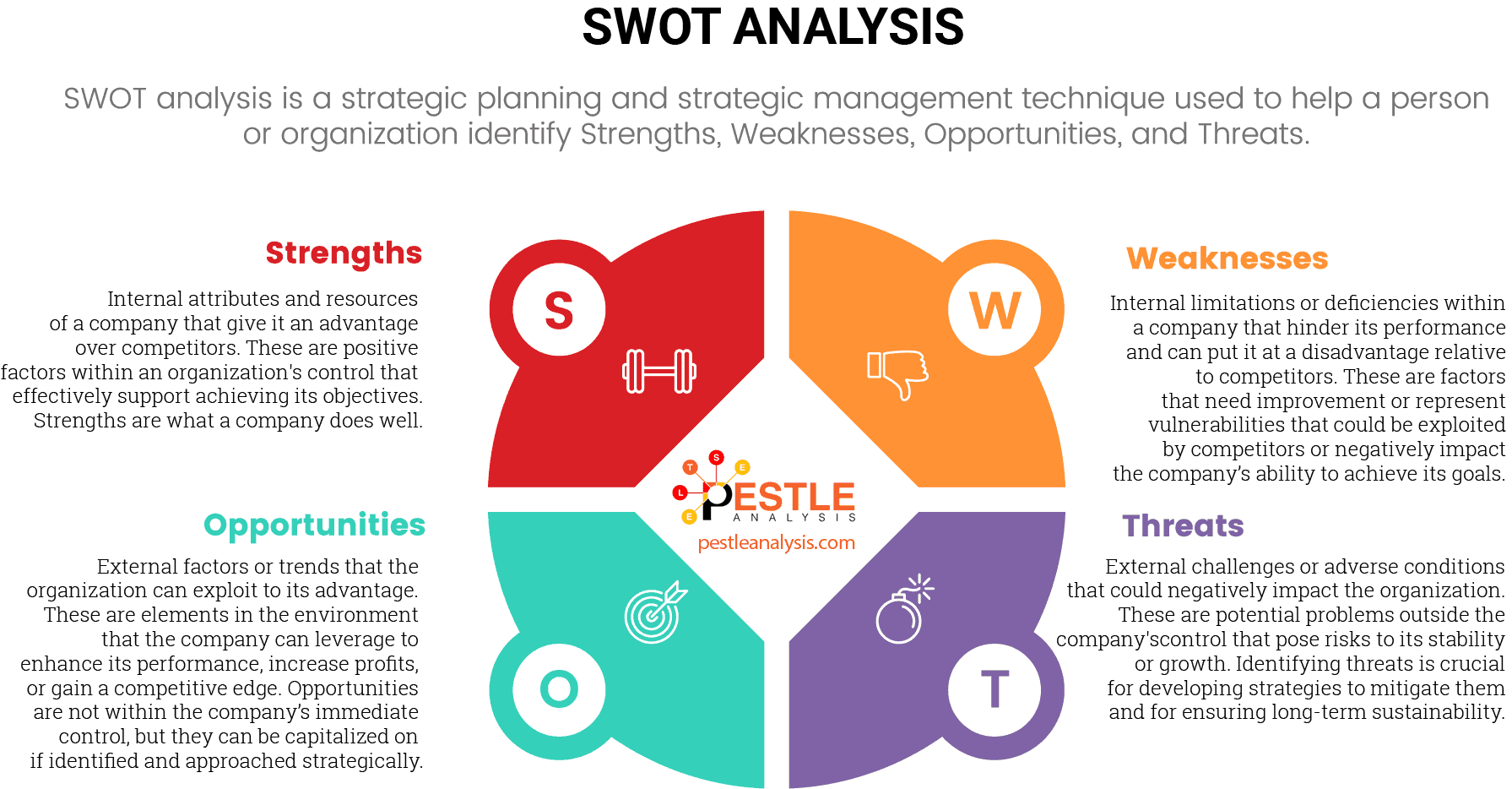Germany is well-known as an economic powerhouse and beacon of political stability for the European Union. This balanced, well-developed nation has a thriving economy of its own, plenty of skilled laborers, and excellent social infrastructure. While previously covered in one of our PEST analyses, we want to take this opportunity to conduct a SWOT analysis of Germany, identifying its Strengths, Weaknesses, Opportunities, and Threats.

Germany's Strengths
Here are the Strengths which Germany has at present.
Strong Economy
Germany is known for its strong economy, which draws from all four sectors: primary, secondary, tertiary, and quaternary. Nothing demonstrates Germany's powerful economy than its minute unemployment rate of just 3% — lower than many other Central European countries. Germany is particularly noted for its share in the automotive, chemical, and metals industries, which are all in high demand nowadays. Overall, it enjoys a great number of international exports and has a thriving financial landscape.
Political Stability
The nation also has a highly stable political situation. As a member of the European Union, Germany benefits from some of the world's most renowned labor, travel, and trade policies. Internally, the German political system has significantly less corruption than other European states, and its modern, democratic approach to decision-making is widely-accepted. German Chancellor Angela Merkel is an excellent diplomat and is highly thought-of across Germany and the entire European Union.
Good Infrastructure
Germany also has a fantastic infrastructure — in every sense of the world. For starters, German travel infrastructure features international travel hubs such as Berlin, Frankfurt, and Munich. What's more, the country is extremely well connected with a range of trains, buses, and trams. Aside from travel infrastructure, Germany offers numerous cell towers, high-speed internet connections, and powerful electricity networks. Other infrastructures such as hospitals, landfills, and schools are in similarly good standings.
Competent Workforce
The German workforce is regarded as being incredibly intelligent and hard-working. In both the industrial and service-based sectors, German employees are known for their attention to detail. Not only does this dramatically increase business performance (hence the powerful economy), but it also gives German products and services a reputation for quality. What's more, Germany has extremely skilled researchers, engineers, and even mathematicians, showing their prowess in the STEM fields.
Positive Reputation
As touched on above, Germany has an overwhelmingly positive reputation — for the country itself and for what it produces. The nation itself is particularly esteemed within the European Union, where it's a major player in the group's overall political and economic stability. Meanwhile, German products are regarded as some of the world's best in many countries, including large parts of Europe. Just look at the automotive industry to see the evidence for this. German automotive brands such as Volkswagen, Audi, Porsche, BMW, and Mercedes-Benz are the favorites of many quality-conscious consumers around the world.
Germany's Weaknesses
Here is the big Weakness which Germany struggles with at present:
High Labor Costs
Having such a well-developed economy does have a few downsides. Most notably, labor costs are incredibly high in Germany. Even unskilled laborers such as retail attendants command hefty hourly rates. With a minimum wage of around 1500 Euros per month, Germany's earning expectations are on-par with other highly-developed European nations such as the United Kingdom, Netherlands, and France. These high labor costs can present a significant problem for smaller companies and startups, and might be thwarting the growth of new businesses.
Internal Political Divisions
Germany’s fragmented political leadership weakens its ability to guide EU trade policy and diminishes its influence in European decision-making.
Germany's Opportunities
Here are Germany's opportunities for the future:
Europe's Leader
It's hard to discuss the future of any European country without mentioning Brexit. In the case of Germany, Brexit could be more of an Opportunity than a Threat. Until now, the United Kingdom has been a base for many European organizations — especially banks. With the UK likely to leave the European Union, a large chunk of the Europe-wide financial and legal industry will be looking for a new home. While France and Belgium are two popular candidates for the new business, so is Germany! If Germany is able to capture this Opportunity, it will most certainly present new revenue streams for the country as a whole.
Renewable Energy
Another Opportunity for Germany lies in the growing industry of renewable energy. Given the country's skilled labor force and high all-round development, it's a fantastic candidate for experimenting with and introducing renewable energy. While the development of renewable energy technology is one option for the country, it's the adoption of that tech which is even more interesting. By remaining at the cutting-edge of sustainable energy production, Germany will be able to reduce its dependence on fossil fuels, and, in doing so, reduce costs and save the environment! Unfortunately, it seems like Germany's high industrial output might allow the smaller, more environmentally-conscious Scandinavian countries to capture this market first.
Germany's Threats
Here's the big threat Germany needs to watch out for:
Eurozone Crisis
As a member of the European Union, Germany is subject to all the political and economic changes that take place within the region. While the European Union is currently in good standing, there's growing evidence that not everybody thinks so. Following the United Kingdom's decision to leave the European Union, several other Western European countries have considered similar moves. If other European states were to make political or economic decisions such as the one described above, that could have devastating consequences for the remaining members.
Final Thoughts on Germany's SWOT Analysis
Just comparing the Strengths and Weaknesses in this SWOT analysis, you can see why Germany is the all-round powerhouse we have come to know and love.
With a thriving economy, skilled laborers, fantastic infrastructure, political stability, and a great reputation, it's no surprise that Germany's high labor costs are hardly holding the nation back. Looking to the future, Germany has an excellent Opportunity to become a leader of the renewable energy industry and the entire European Union. If only it can weather any Eurozone storms, Germany is in a great place.
To learn more about Germany, be sure to read our PEST analysis of the country, which analyzes things from the Political, Economic, Social, and Technological lenses.











